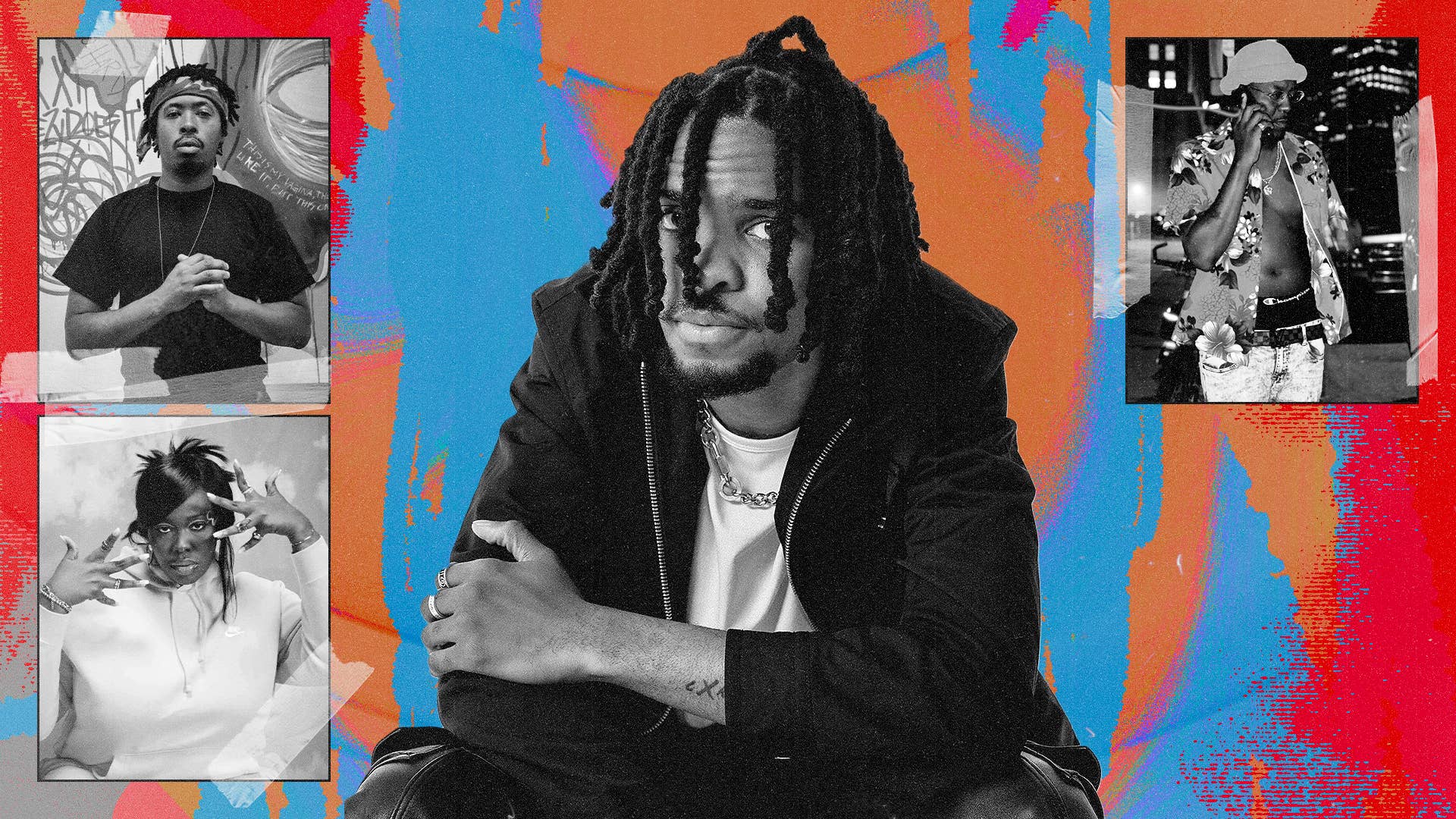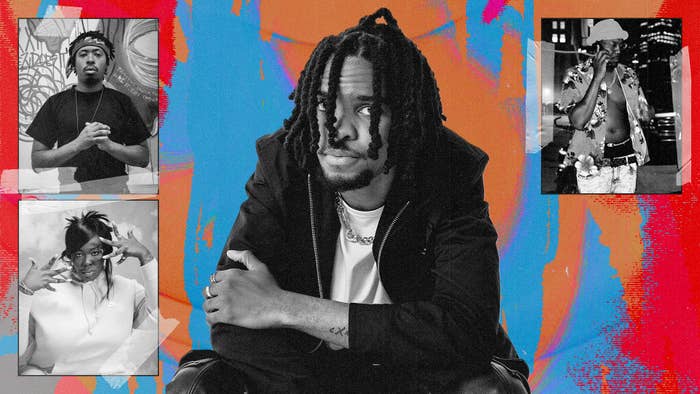
Going Left is a monthly column that highlights exceptional work from indie hip-hop acts. Read previous editions of the column here.
Welcome to Going Left! This will actually be the last edition of the column. It’s been very rewarding writing about some of the most interesting rappers out there for Complex, and all of the positive feedback I get about the column lets me know the work is valued. I’ll continue on my journalistic mission to amplify dope independent artists, but it’ll just take a different form. Anyway, onto what we’re here for: dope indie raps.
This month’s featured artist is East Orange, New Jersey’s Chris Patrick, who reaffirmed for me that sometimes fear is just an opportunity. During a 40-minute phone call, he tells me that he had anxiety about creating his new album, X-Files. The 14-track project, which is out now, has been lauded by listeners for its vulnerability, as Patrick culls through his reflections and realizations over a versatile canvas, from the lovelorn melodies of “Lead Me On” to the lyrical confessional “Gang Activity” (the latter of which had a compelling music video directed by his creative director Kayla Bryant).
What makes the project even more fascinating is that at one point Patrick didn’t know if it was possible. With a candor that he’s becoming beloved for, he tells, “The one thing that I was scared of was just, like, I didn’t know what to talk about after finishing a project. I didn’t think there was anything left for me to do. And I was just scared. I didn’t think I was going to be able to make more music.”
Ultimately, though, like with so many artists, life happened. Patrick’s creative process accelerated in response to the experiences he was having, and the project was created over the course of 18 months, with him rewriting verses for multiple songs. He says that he originally wanted to drop it in October of last year, but a listening session he had at the time burst his bubble.
“At that time, I felt like I was on top of the world,” he reflects. “I felt very prideful and I felt like things were going so amazing in my life. But then I remember playing that project and I watched folks sit in a room with me and just look at me and be like, ‘yeah. So this first half of the project is cool, but that second half just drags.’”
He says the experience humbled him and took him back to the drawing board, and he also credits his circle’s honesty with helping “phase this second arc of my life.” He reveals, “I just started to mellow out and just start to understand what is important to me.”
I spoke with Chris Patrick (and Kayla) about X-Files, making your album a world, New Jersey rap, and how he feels about praiseful comparisons. The interview, lightly edited for clarity, is below.
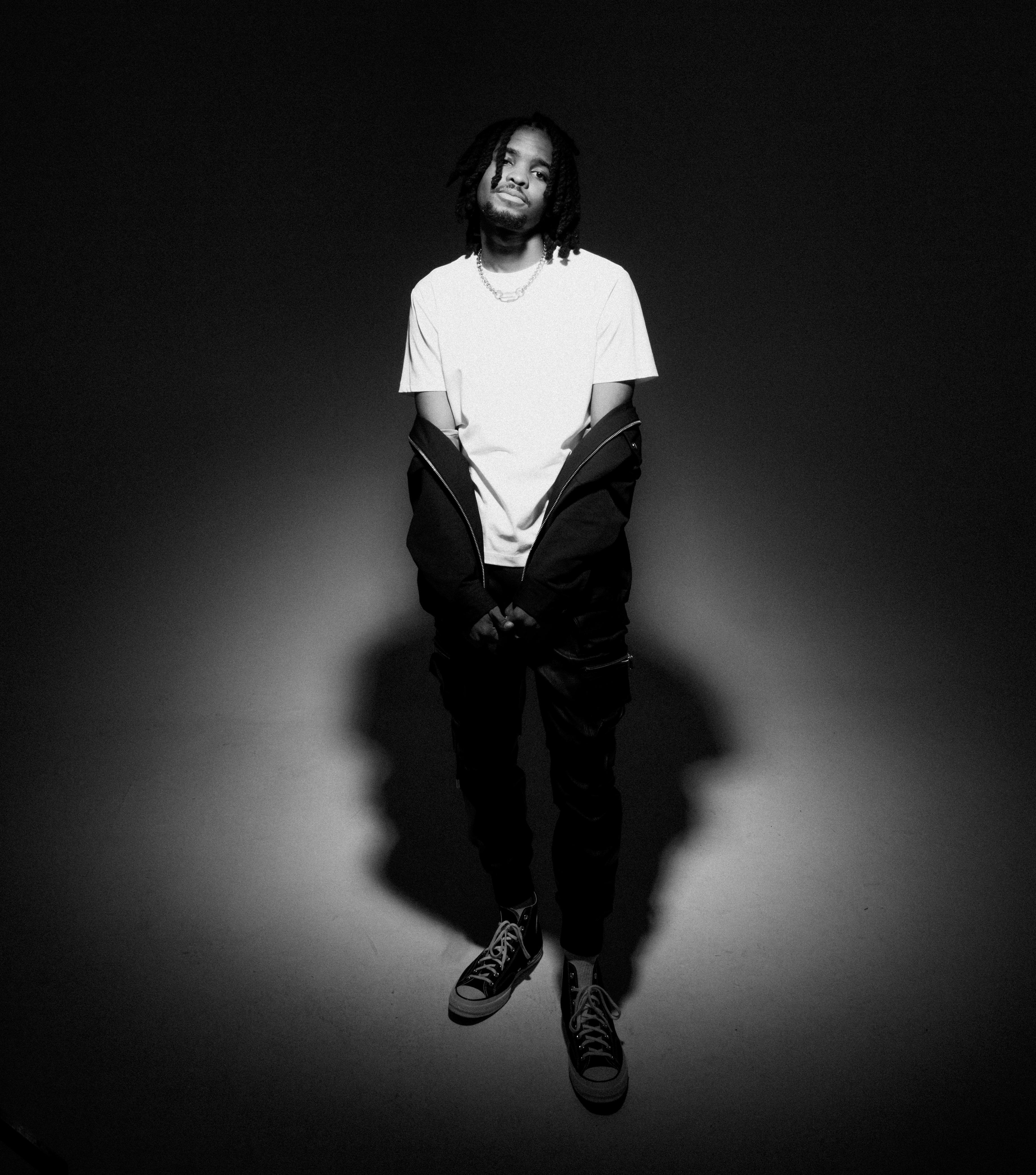
How are you feeling about the feedback to the album so far?
Having given 18 months of my time and my life to putting this project together, I feel amazing seeing how everybody’s taking it in. I got the project before this, it was nine tracks, called From The Heart, Vol. 2. That was a nice little stepping stone, just for an introduction. But this project is so different. It’s on a grander scale. There’s a lot of work that’s going into it. There’s a lot of caring hands that went into it. Just to see people ingesting it, enjoying it, and saying things like, “Yo, there’s no skips. This shit is a masterpiece. How many years?” It just warms my heart, because it goes to show that the work we put in was worth it.
Who are some of those “caring hands” in the process?
From the top, my dog Miz. He’s my A&R and my best friend. He was with me through every step of the project. I wrote everything, of course, but he was there in all the rooms giving me feedback like, “Hey, that bar here, I’m with that.” Even to the mixing process. We saw this through from the beginning all the way to the end. He was around [for] the whole thing.
You obviously got my dog Kayla on the phone. She’s incredible in terms of bringing the creative vision to life. My dog L10 from Chicago, he mixed the whole project. Bro literally took what we had and brought it to a level that I didn’t believe was possible this early in my career. I know this is a longer journey, but he turned this project up in ways I had never imagined.
My dog Ro Marsalis. He’s amazing. He did a lot of production on the project. My homie Brandon Phillips-Taylor stepped in and got super crazy with it as well. Shout out to my dog, Billy Blunt. Shout out all the features. Honestly, everybody. Those are a lot of the names off the top, but it took a village to bring this whole project to life.
At what point in the 18-month creative process did you think, “OK, everything I’m creating is for this album”?
I dropped From The Heart, Vol. 2 on December 14, 2020, and I started this project December 15, the day after. Initially it was like, “Aight, we know we want to go to the next project.” But I didn’t know what to talk about after finishing a project. I didn’t think there was anything left for me to do, and I was just scared. I didn’t think I was going to be able to make more music, but I was just like, “Hey bro, let’s just keep creating tracks and let’s just see what comes from it.” Over the course of time, I was putting together records and I was watching a new concept form. It only came from me living life over the course of 18 months.
This [album] is based on three years of my life. It was created in 18 months. And through the course of living those 18 months, I was able to unravel a lot that I ain’t talked about within three years of my life. [Not every song I created] was thematically tied to this project, but it was just about selecting the ones that best represented me from a writing standpoint, and from the range and versatility that existed with the sonics. This project has 14 tracks, but I got hundreds.
“Forcing myself to heal as a person did everything to make this music thing more possible than ever.”
What was the process of going down from hundreds to 14?
Initially, my goal was to hit 12 tracks. But I didn’t think anybody wanted to listen to anything longer than nine tracks. I think I cut six and was like, we’ve got to rebuild this from the ground up. But in the process of doing so, it ended up with 14. Going into it with the idea of having only 12 tracks was what kind of limited my creativity, so it was like, “Aight, we have a beginning, we have an ending. How do we get to each side of that?” That’s how you start a project.
I usually start by creating an intro or creating an outro. The outro usually comes later. But when I have an intro, I’m under the impression I know where I’m going with this body of work. And instead of just saying, “Hey, I want to keep this 12 tracks,” I was just like, “Let’s create where this story takes us. Let’s see if we can move through this in a way that it’s beautiful in terms of the cohesion and the transitions.” And from there, we ended up at an amazing 14-tracks.
You said you started this project the day after releasing your previous one. What made you want to get right back to it like that?
The biggest piece that sticks in my heart is track and field. I ran track for seven years of my life. I ran a few years in high school and four years of college. I was a hurdler and a high jumper, and I will never forget winning my first collegiate championship. [I was] thinking to myself like, damn this shit is cool, but I’ve still got to come back here next season and do this. It was the indoor and outdoor season, and I thought to myself, “I got to win the outdoor hurdles, too. This shit don’t end.”
It’s the same thing with music for me. It’s like, “Aight, cool, we created this amazing moment, but ultimately we’ve got to keep going.” I worked at Best Buy for a little bit, and one of the mantras they had there was, “What have you done for me lately?” The project before, Vol. 2, was an amazing project in my opinion, but in a couple months, folks were going to forget about this and they’d be like “Chris, Patrick, what’s next? “ I personally don’t get hung up on these moments. Even with X-Files the deluxe, I got 15 tracks already ready.
Can you take me into your anxiety about feeling like you might not have new things to say?
I’m not going to lie, I lost my mind. This course of 18 months was so crazy for me because I lost my mind trying to find what made me special again—what was making me unique. Obviously I didn’t want to harp on the things I talked about before. It’s all about how you show growth as a person and as an artist, when you don’t know what the fuck is going on. After losing my mind a thousand times over, I was like, “Hey, just live life, and let’s just see what happens.” I create music in spurts. I write every day, but I create fully in spurts, because sometimes when I feel like I can’t create, it’s because I’ve got to go outside and live life to experience more. Then I come back and I start taking the things I wrote and bringing them out to be full concepts.
It is a very scary thing, though, because I didn’t expect it to take 18 months. I was terrified, bro. It was like, “What if I can’t rap? What if I can’t sing? What if I can’t make anything anymore? Am I just a one trick pony?” It was the craziest feeling I ever had in my life, because that could have been it for me. And then I was okay with it, too. [I look at my] music and rapping ability as a God-given talent. If God decided to say, “Hey bro, you done served your purpose,” and I can’t write no more, then I can’t write no more. But I was glad that I could keep [going]. Even as we were doing X-Files, though, the full concept didn’t come together until like month 11. Mind you, we dropped singles and shit, and I’m sitting here. I still didn’t know what this project was about. But through living life, taking my time, and being patient with myself, I was able to understand what was happening.
When you were feeling scared about your expression, what other things did you lean on? What helped you out of those feelings?
I tried shrooms for the first time ever. That was definitely eye-opening for me. But honestly, being patient and forgiving myself. This whole process was therapeutic for me, because I’m over here uncovering a lot of shit that I hadn’t talked about. I think the anxiety, lack of conversation, and topics came from me not wanting to dive deeper into my life. I was scared to uncover a lot of things I hadn’t talked about. Through solving my problems, I was able to work my way out of this space that I was in, and now creating music is so easy for me because being vulnerable is second nature at this point. Forcing myself to heal as a person did everything to make this music thing more possible than ever.
People have been talking about how vulnerable you are on this album. And if I’m interpreting correctly, a lot of your willingness to be vulnerable came from you trying to use art to mend what you were going through personally?
You hit that on the head. I don’t think I was the best at communicating my feelings before, but the music was my medium for getting a lot of this stuff out. It’s just me, my laptop, and my mic, in my room working on all of this stuff. As I’m writing these lyrics, I’m moving through and sorting out a lot of the stuff that I’m feeling. I’ve got songs in here that have six or seven verses because I’m writing it one way and I don’t like the way it sounds so I come back to it and write it from a more mature perspective. Then I’ll come back to it again, write it from an even more mature perspective.
There’s a section where I talk about how I lost so many people and struggled with understanding my faith in God. I rewrote that verse five times because my understanding of what God meant to me changed so much over 18 months. I got six versions of the intro because I [was] trying to understand what my happiness means to me. I got a couple verses of “Scared,” breaking down what it means to be fearful in terms of just toxic masculinity.
How did the X-Files package that you gave out to people come together?
I love giving flowers to people who fully deserve it, and that idea was Kayla’s. I’m not going to lie, when she said she wanted to do it, I was just sitting there thinking to myself, “This sounds cool. I don’t know what the hell we’re doing, but I trust you.” I know it sounds crazy to just trust a person with your rollout like that, but this whole project has been about me trusting people. The package came out fire. She killed it to the highest level. Her having an [understanding of] the music and understanding how to bring that to life was so important to making this moment feel as grand as it is. She even sent it to a lot of my favorite rappers, too. It’s been a dope moment.
How important is it to find ways to carry on the theme of your album in your promotion, so it sets it apart from every other release?
I enjoyed watching Tyler, the Creator’s rollout in 2021. I thought that was super cool, and I wanted to do [something like] that when the time came. We’re in the year 2022 where TikTok exists and Twitter is constantly moving. Social media has taken over and it’s definitely frying all of our minds. One of the things I realized is that you can put up something one day and folks will forget it. I can’t tweet three months earlier, “Hey, my project is coming!” and then expect people to worry about it.
It’s also more than the music. Creating moments around the themes of the project brings it to life outside of the music, which makes the music stay around. There have been a lot of amazing projects that fell on deaf ears just because the marketing wasn’t up to par. It sucks that stuff like that happens, but this is the world that we live in. Shout out to the people who discover the music without having to go through the news and the marketing, because even I’ll be discovering music like that, too. And I’ll be like, why’d I sleep on it?
But by going out of your way and bringing those themes to life, not only do you make the music look good, but you create a world for everyone who’s a part of this journey. So when we look back on this moment, they can be like, “Do you remember when Chris did this?” That’s super dope to me. I think everybody, from all levels, should do more of that to make these things feel more exciting. Music is getting boring. When we add more to it, it restores the feeling again.
There were some handwritten lyrics in the package. How did you decide which songs to put in that pack?
The two that I chose were “Gang Activity” and “Useless.” “Gang Activity” is super important to me because me and my homies all came from different walks of life. We always referred to [each other] like, “That’s the gang, that’s the homies.” And “Gang Activity” is important because it’s literally recounting the stories of me and my homies growing up, in the most comprehensive way possible on record.
The opening lines are, “Word to my momma, me and all my niggas been tweakin’, just a pit of delinquents in sequence/ Not the pick of the litter in God eyes but we picked up the intels on defense.” That paints a picture off rip, because you’ve got a bunch of kids who may not have been seen as those types of kids compared to everybody else. But we were good at sports. My mama knew my friends were crazy, but I was still hanging with them anyway. That paints a very beautiful picture for where I grew up.
And “Useless” was the turning point I was referring to. At the time, I inflated my head, just based off a lot of the cool shit that happened with the first project. And I think it humbled me in that moment, watching people not still talk about X-Files when I first played it, and it made me look at myself and try to identify what matters to me. And in the process of that, I did feel less than myself. Through that song, I find myself talking about a lot of the stuff that I’m feeling, while also coming to a realization that there is work to do. Those two songs are so important.
[Kayla:] I think those two songs speak to the theme of the album. “Gang Activity” is brotherhood, [because] your family is very important to you. So that’s why they’re in a lot of the promo, but then “Useless” is the human approach. They serve two different purposes, but they’re two important parts of the journey to X-Files.
Hey, man. That’s tough. I appreciate you.
How does it feel to hear yourself being compared to other artists?
I actually don’t mind it. I used to get bothered by it, but after I put music out into the world, it’s for the world to decide how they feel about it. It started off with a good reception, and I appreciated that. Once the comparisons start, I can’t control that. I just watch it and I laugh. To be honest, when I was growing up listening to rap, I used to do the same thing, so it’s cool to watch people throw me in these brackets. I don’t always agree with them, but that ain’t for me to discuss. That’s for the fans.
I’ve seen a lot of comparisons to Kendrick and J. Cole, like you can be a “successor to the Big 3.” How do you take that?
If anybody says that there isn’t pressure, they’d be lying. There’s always pressure with that. For me, the pressure lies in the idea that I do want to get to a level like that. A lot of the pressure gets released, though, when I know that I just have to keep doing what I’ve been doing. The beauty of this project comes from the fact that I trusted myself and didn’t allow a lot of the outside influences into my head as I created this. If I keep doing that, it’ll work out.
How has remaining an independent artist given you the space to refine your music and grow at your own pace?
The idea [of independence] is the most beautiful thing in the world, because I’m not in no box. One of the things that my team and I struggle with is thinking that we’re going to be in a box. But realistically, I don’t think there’s an actual box. You do what you do. I know I touched a lot of genres on this project, but I did it with confidence, to make sure that I respected and abided by these genres, while also leaving my own touch on it. Because of the [independent] situation that I’m currently in, it does allow a lot more freedom. I don’t feel like I’ve got to see anything or stick to one sound. I can just try whatever the hell I want. Having the freedom to experiment with music is something that I think more people had.
You opened your “On the Radar” freestyle by saying, “this the perspective of an outlier.” When did you embrace being an outlier?
It started from the moment I was born in New Jersey. You feel me? [Laughs.] I feel like we do have our greats—I’ve talked about Lauryn Hill, and Fetty Wap is another amazing [artist] that a lot of people do forget about. When it comes to representation from Jersey in terms of the music scene right now, it’s like, we got folks, but we don’t got that pipeline the same way Atlanta do. We ain’t really had a direct pipeline.
For everybody from Jersey, we always felt like we’re outliers to music. We ain’t found a way to get it in there. Another reason why I had to go super hard for that freestyle was because it was way bigger than me. It was about Jersey. The amount of texts I’ve received from people in Jersey like, “Bro, thank you, we needed that,” it’s huge. But I had to put on from the moment I realized the state of where Jersey was in the music culture. That was the moment I realized, like, “Hey we are outliers and we’ve got to find a way to cut through the noise.”
“The idea [of independence] is the most beautiful thing in the world, because I’m not in no box.”
How do you feel about where the New Jersey rap scene is today?
There definitely could be more attention on Jersey, because there’s so many talented people from Jersey. I got a homie, Jotty Jo. He’s crazy. My dog Jay Jones is nice. My homie Cash. There’s a couple people I even mentioned in the verse. There’s a part where I go, “I’m strapped in. I could clap you in a coma, madness, I might snap in any moment.” That’s from Nu Jerzey Twork. He’s a battle rapper. “How many mics you flip on that daily…” that’s Lauryn Hill. I mentioned Kyrie Irving in there. I reference BBG Stepper, Tsu Surf, D-Rose, and the other homies who literally be rapping it.
I definitely feel like we need more light shined on us, but it’s going to get there. We’re definitely an underrated scene. I think folks are definitely sleeping on us, but within the next three to four or five years, we’re going to have a lot more people from Jersey pop up.
What do you have planned in the near future?
We got videos on the way. We got too much content at this point. We got to offload this. We’re going to be around a while with this project. I’m trying to work on two projects next. There’s an X-Files deluxe, and then I’m trying to work on the project after that. Visuals, live performances, hopefully get on some tours, and then more projects.
So you’re keeping the same pace as before, starting with the next album as soon as the other one is out.
Yeah. It literally just dawned on me, as you said that… During the last decade, Drake dropped a project every single year except for 2014. And he doubled up on 2015 with If You’re Reading This It’s Too Late and What A Time To Be Alive with Future. He just kept running it up for the decade. I’m trying to do the same thing. I’m not trying to do a whole 18-month run-in between every single [project], I can’t do that. That’s going to drive me crazy. I’m trying to fire it off. Obviously, everything is going to be quality, but I want to fire it off. I want people to know we’re outside, we present. I haven’t seen a “rapper,” in this lane per se, do that [frequently], but we’re going to definitely try to be the first. I’m trying to feed the street.
Is there anything else that you want to express to our readers?
I think the most important piece is: Just be patient with yourself. We’re all going to make mistakes at the end of the day, but it’s important that you forgive yourself through the process, regardless of what process it is. In order to become greater at what you do, you’ve got to take your time on things. You’re going to fumble, you’re gonna slip, but every mistake is a lesson learned that allows you to become greater. A seed don’t get planted in the ground and immediately grow into a tree. It has to weather the storm and become big and strong.
On top of that, man, make sure you’re all being safe. Brush your teeth and put on deodorant. That’s super important. I’ve got to remind people. I’m not going to lie, every time somebody asks me what you want to say to [the people], I tell people, please keep your hygiene up, friend. Because too many of y’all walking around, and you all be up in my face and shit. But yeah, that’s it. [Laughs.]
Below are some other dope projects that were recently released:
Def Soulja, ‘42 Square Miles’
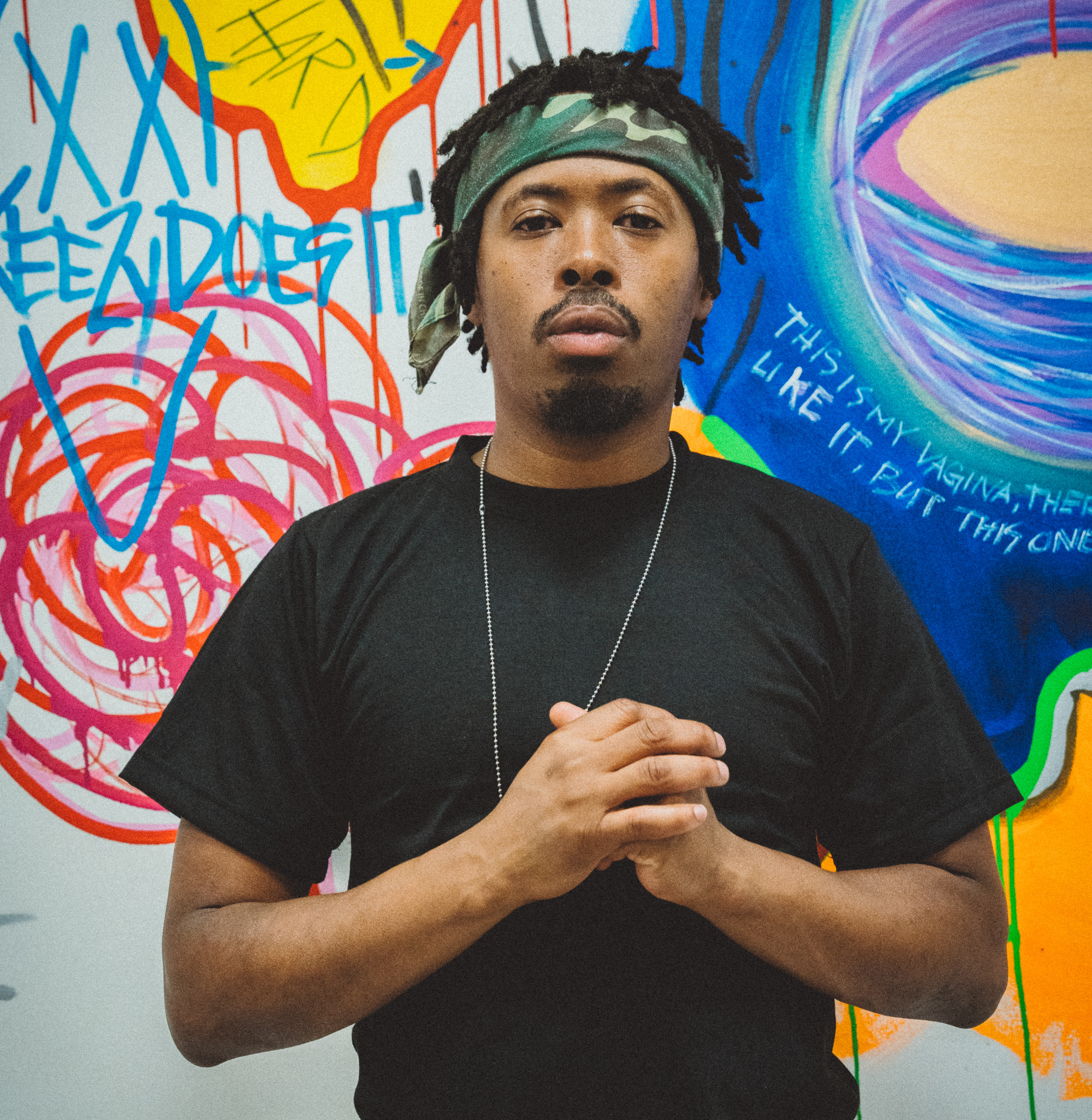
Def Soulja’s name has been buzzing for his “03 Smack DVD” track with Nym Lo, where the two trade bars over a regal horn sample. As Def rhymes, “Back block niggas, spit it for the go getters and the have not niggas,” you’re immediately transported back to ‘03, a time when you might have bought the 42 Square Miles album at a barbershop or on your town’s strip right next to an actual SMACK DVD. It’s a timestamp worthy of the era it’s celebrating.
When Def rhymes, “You talk like you got some thug in you til a slug hit you, and make your skull whistle,” on ”Directed By Hype Williams,” you know exactly where you’re at. Rome Streetz, who appears on “Skatekey on Allerton,” has told Complex that he embraces the notion of channeling the Golden Era of New York rap through his music, and it’s easy to get the same vibes from Def. You feel it in his knack for stacking multis, even for dead serious but dead hilarious bars like, “If you wasnt there from day uno, you might as well be in a box with ‘fuck boy’ on your tombstone” on “Devils A Liar.”
Def places himself in the midst of classic New York moments throughout the project, rhyming, “Back when Nas had the tec on the dresser, I watched my brother bag up work and count cheddar.” And on “Stuck with Me,” he’s “grindin through the Bronx on the 4, 5, 6, rockin Beans’ verse on ‘4 5 6.’’’ If the song title “Chopped Cheese and Grape Soda” doesn’t scream New York, him rapping, “My style flagrant like Ant Mason, back when the Garden was live and we went to war with the Pacers” makes it apparent.
The idea of “back then” plays a heavy role on 42 Square Miles, but not in an annoying way. Def’s devotion to classic New York rap never feels like a crutch, or a gimmick, or something he loses himself in. In fact, he advances on the sound for 2022. On “Skatekey on Allerton,” he sounds like he’s battling anonymous foes, but the disses are updated for a new era as he rhymes, “You gassed by them IG likes, they your fuel injector,” before bemoaning people “lost in your phone, nothin but me toos with lean in their styrofoam.”
The entirety of the project is produced by 183rd and the two artists show strong synergy. 183rd’s sample choices impress throughout the album, as the cinematic strings and horns oo songs like “Devils A Liar, “03 Smack DVD,” and “Directed By Hype Williams” amp Def’s no-nonsense mic persona.
He sprinkles details of his life throughout the album, but 42 Square Miles veers in an even more vulnerable direction for the last triumvirate of songs, as 183rd chooses warmer samples ripe for Def to explore his pain. On “Long Ago,” he reveals, “Saw pops hit my mom made my heart cry/ My brother got murdered made my heart die/ Those were the portals to my dark side” over an elongated vocal loop. He starts out “Henny Privi” by rhyming, “I be drinkin myself to sleep but smokin to stay awake/ If you don’t understand you can see it in my face,” before exploring how trauma can cause self-medicating. He does similar on the final, eponymous track where he rhymes, “Nowadays I’m more of a family man, on the grind tryna execute my master plan.” 42 Square Miles is a strong step in his ultimate journey.
Mickey Diamond, ‘No Liquor Before 12’
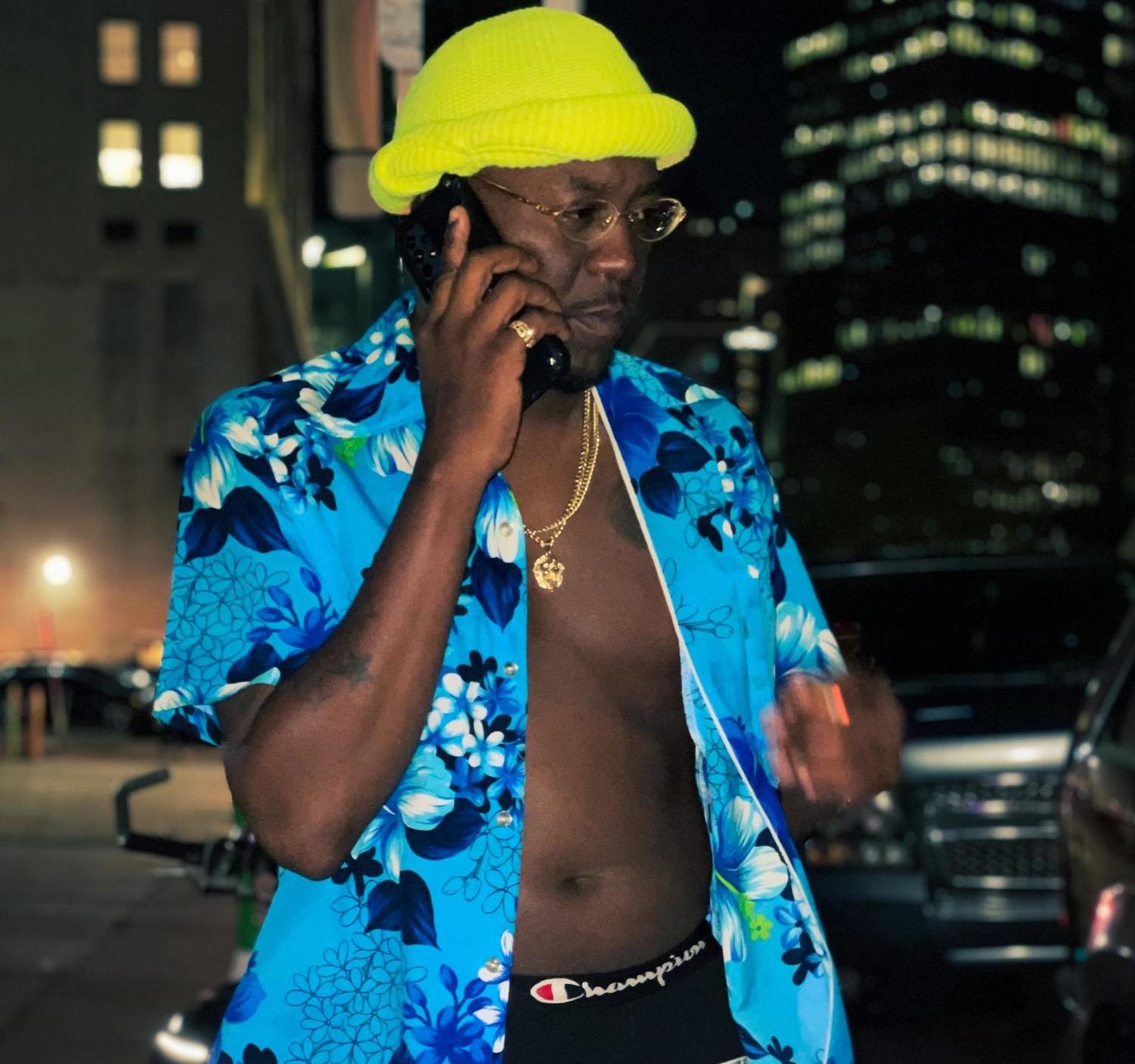
“All my plugs was Black, I’m from the ghetto, hug the streets but they won’t hug you back,” Mickey Diamond raps on “Sports Drugs Entertainment” from his new album No Liquor Before 12. The soulful beat drops at the end of the bar, emphasizing the bare truth of the matter.
As an oppressed people, Black people often find themselves seeking solace via substance dependence. The prevalence has seeped into our creative canon, across genres and disciplines. Mickey Diamond’s No Liquor Before 12 is the latest entry in the canon, and it’s an impressive contribution. Over 15 songs, the Umbrella Collective MC explores not with sanctimony, but through subtle depictions of usage.
The album begins with him rapping, “Money can buy cars clothes beer, win, liquor, shine, everything but time” on “Time Wasted,” as he uses alcohol as the premise to exemplify his grind, spitting, “Look at how time flies, yall done let a year pass / Y’all was poppin rose and i was on my way to real cash.” But then he turns it on “About Last Night,” rhyming, “Greek Freak, take a couple shots then pick my kids up/ Liquor on my breathe, liquid death it got me vengeful.”
Interspersed within those references, though, is an incredible exhibition of Diamond’s technical rapping ability. Throughout the album, the Detroit rapper contributes to the city’s everlasting reputation as a haven for lyricists. He can rap with a compelling poise, rationing his smooth baritone and treading softly over beats like “Casa Migos” and “White Liquor Lord.” But he can pick up the urgency on songs like “Stick Up Men” with Jay Royale, who matches the beat’s dire tone by rhyming, “Be in thousand dollar sheets sleep with one eye open.” Whenever collaborators show up on the album, Mickey meets their fervor with his own competitive zeal.
Mickey hammers home the album main theme with double entendre titles like “Absolute Power” (a play on Absolut vodka), “Happy Hours,“ “Last Call” and “Bartenders,” where he trades rhymes with Jamil Honesty for over five minutes over two beats. The project is also anchored by alcohol-related audio clips, including a Method Mar St. Ides ad and a vocal clip of someone shouting, “And I don’t smell like liquor!” on “Absolute Power.” There’s the sobering laundry list of alcohol’s health effects on album intro “Damage,” as well as the wackiness of an ad for Crazy Bruce’s Liquor and a pastor telling his congregation to touch their neighbors and tell them, “The reason I’m happy today is I had a shot this morning,” between the final two tracks.
The end result is a project with no overall stance on whether the drinks are good or bad. On “Happy Hour,” he rhymes, “These wine and spirits help design the lyrics I write,” while writing about marital woes that he re-explores on album highlight “About Last Night,” where he raps, “My wife said I’m drunk every day, I said, ‘So what?’” We often look for artists to beat us over the head with morals and slogans, especially when they explore topics like substance abuse, but these are just expertly crafted snapshots.
Someone looking for an “I’m never drinking again” confessional will be disappointed, as will a listener expecting an ode to alcohol. Diamond treads his conceit with consideration, exploring both the perceived benefits and drawbacks of dependency. Who knows how long he’s been working on the project, but it’s even more impressive that it’s Diamond’s fourth project (of five) for 2022, and the prolific MC is already onto promoting his Bulletproof Bathrobes project with Machacha. When Mickey rhymes, “They did the best underground rapper list I felt left out” on “Sports Drug Entertainment,” one can see why. People need to adjust their lists after the year Mickey’s having.
Nezi Momodu, ‘The Pound’
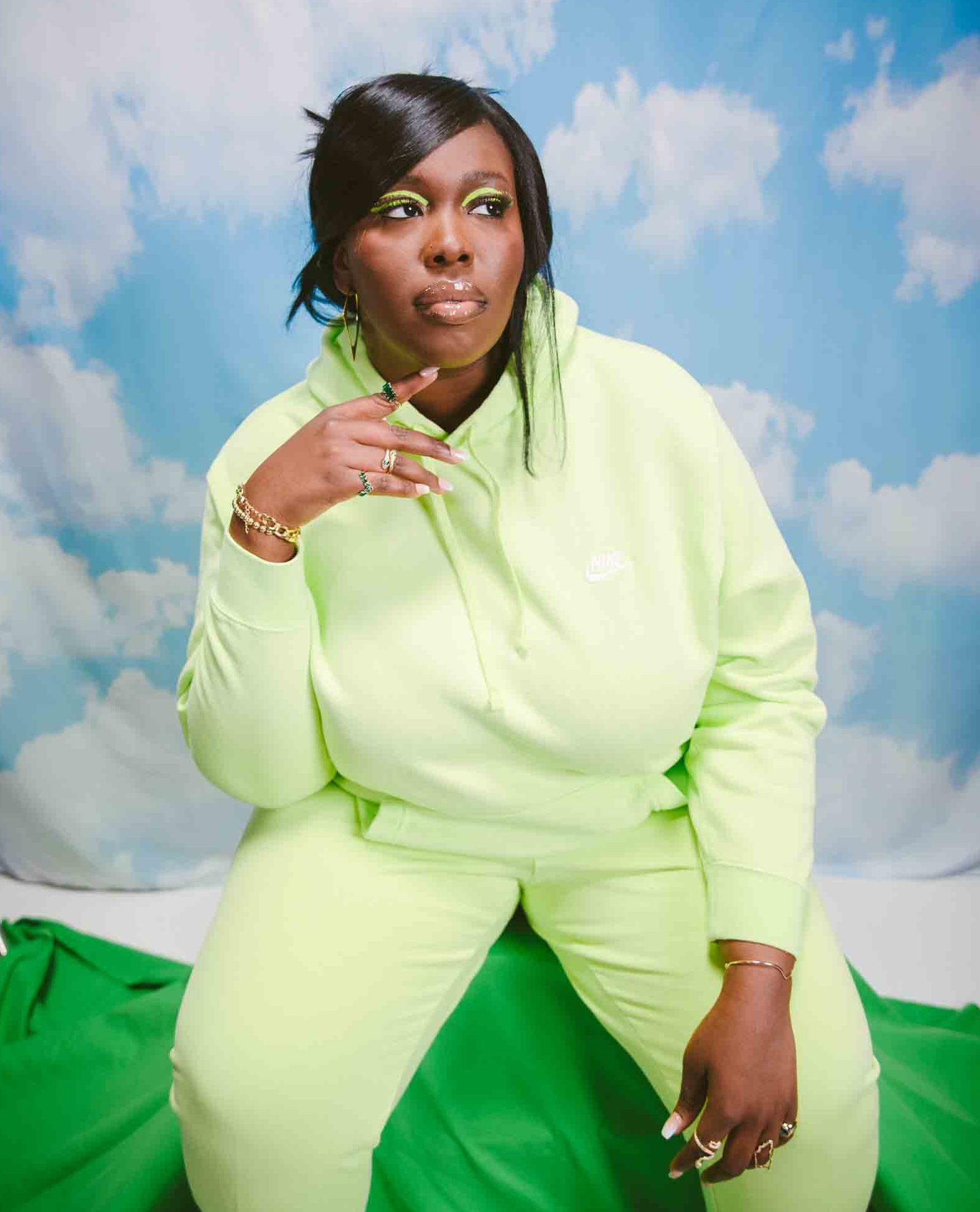
“Niggas really be sleep on how influential Dallas is to the culture,” D-town rapper Nezi Momodu says on “I’m A Dog,” the aptly-titled intro to her The Pound project. Thumping, ominous 808s wait on a leash, playing the background as she vents that rappers all over the map have been stealing the sauce from Dallas culture and calling it something else. “But the artists here have something to say, we hungry all over the MetroPlex,” she declares. And then she eats, churning through producer’s PTSMN filtered synths with a brash double-time flow and too-relatable queries like, “How I’m ‘sposed to sleep when my mama couldn’t eat, and my boy in the street gettin’ clapped with the heat?”
The second verse on “I’m A Dog” opens with Nezi reeling off three different flows in her first six bars, displaying a quick glimpse of her vocal skills. She keeps this pace up throughout The Pound, her latest 10-track project, where she rhymes with the ferocity of a pack of pits over fun, DFW-fried production that gives her rhymes centerstage.
Nezi has said that the project is a “love story to Dallas and to the community that holds so many different voices and perspectives. I wanted to have fun creating different styles and themes and just let loose on this project.” That’s exactly the vibe that radiates on the EP, which was released on Repost, SoundCloud’s artist services division.
The Nigerian-born, Dallas reppin’ MC is known by her growing fanbase as the “wordplay queen,” but this project is just as much of a clinic on mic presence. Her skill is demonstrated through rapidly winding flows and cadences on songs like “Iyum” and “On Gawd.” On “OPP,” she takes two different approaches, stretching out her words and rapping more deliberately in the first verse before speeding it up on the second verse. She similarly slides on “The Pound” with Dallas rapper D-Truce. When she rhymes, “Name another b*tch with a flow on breeze, none of these hoes got dough, got steez, got snow, got dro, got soul, got yo’s, got o’s, got stores, got shit on me,” you believe her.
And even when she’s relatively calm, like on “N.E.Z,” you feel her confidence when she rhymes, “Money long like Nia, look what we got here: Big Black b*tch with a Black brassiere.” You can’t sell a line that bold without your confidence on 1000. The entire EP radiates the kind of outsized mic persona that draws in listeners and quickly creates fans like Logic, who gave her shine on “Introducing Nezi” from his Vinyl Days project.
Nezi also excels at hooks, with “Ante Up,” “OPP,” and “The Pack” as particular standouts. When an MC is rhyming their hook instead of singing it, crooning it, or leaning on AutoTune or some other vocal filter, it can be easy for it to bleed into the verse. But Nezi doesn’t have that issue, as the entire project shows her knack for hooks ripe to be screamed to the top of one’s lungs. The Pound is the kind of project that epitomizes the good things that happen when charisma, lyricism, and flow are working in tandem, and it’s a worthy ode to Dallas.
Follow our Going Left Spotify playlist here!

